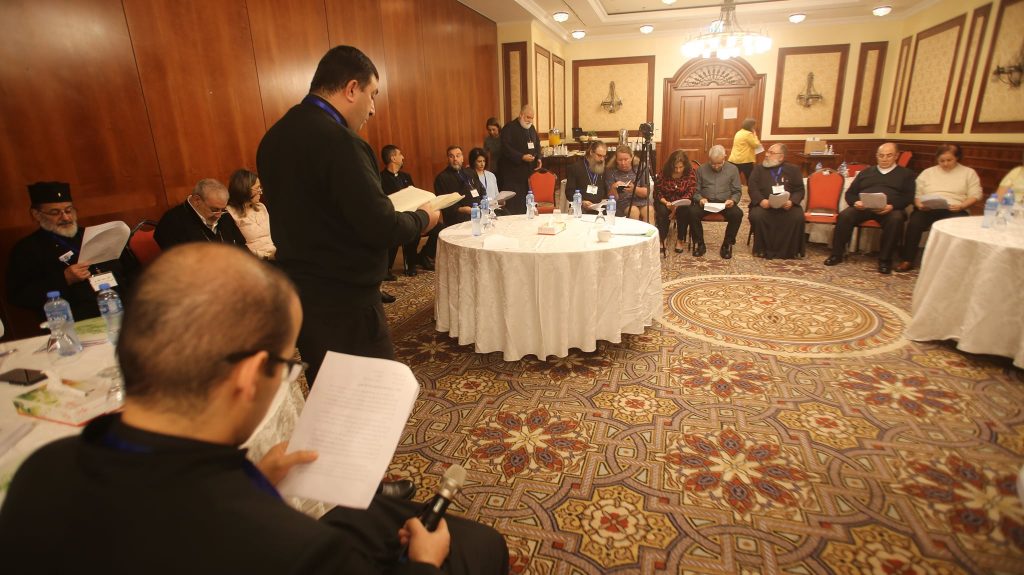
On Monday and Tuesday, 22-23 November, Sabeel held a meeting in Jericho for 42 clergy and their spouses from different church traditions in Palestine and Israel. The first in-person meeting for clergy in an ecumenical setting since the pandemic started. The two day event included a debriefing on the clergy’s experiences during the pandemic and the struggle they and their parishioners faced. In some cases, parishes were asking the clergy to re-open the churches and in other cases, parishes insisted the church remain closed. Clergy noticed a growing need for community and support, as parishioners struggled due to uncertainty and depression, especially as tourism and pilgrimage stopped and businesses lost income. This situation burdened and exhausted the clergy, as they had to find new ways to help families in need.
During the meeting, the clergy also reflected on how the church in both Palestine and Israel can be more transparent and cultivate a closer relationship with the community, particularly women in the community. Churches recognized that women are generally not part of decision making processes, though women form the majority of those who come to worship. In most church councils, women have no or little representation. Realizing how important women’s contributions are in their churches and communities, the clergy admited to the sin of not having women more involved in the leadership of the church. This was truly revolutionary, because in the past, clergy usually defended how the church was operating. This admission and desire for change could be a result of a combination of factors, including the burden clergy have been facing during the pandemic, the informal leadership women held during the pandemic, and an accumulation of efforts made in the past to create more formal leadership roles for women in society and the church.
The meeting also focused on the churches’ desire for greater collaboration with churches throughout the Middle East and North Africa region. The clergy discussed three recent developments in the region.
1) The Catholic Church, by the request from the Pope, is organizing for a special Synod. The purpose of the Synod is to create a forum for Catholics around the world to listen to and talk with each other. Also to hold discussion within their parishes, churches, regions as well as internationally. The Synod deliberations will also help churches understand their role in the world, provide feedback, and encourage people to contribute and build bridges and work together.
2) Theologians from different church traditions and countries in the Middle East published a document entitled, ‘We Choose Abundant Life’, which proposes a vision for Christian churches in the Middle East for the future.
3) During the meeting, the clergy also studied a theological document published by the Council of Catholic Patriarchs of the East in 2019. It didn’t receive much attention due to the pandemic. Written towards the end of 2018, the document was born during the time of the civil wars in the Middle East, when ISIS was powerful, and when Donald Trump was President of the United States. The Catholic church leaders spoke openly and prophetically about what people felt and wanted to hear.
Sabeel will follow up in early 2022 on the recommendations made by the clergy. In addition, Sabeel and the Church of Sweden, which has regional projects in the Middle East, have been partnering to help facilitate the expansion of Sabeel’s work in other countries in the region.
